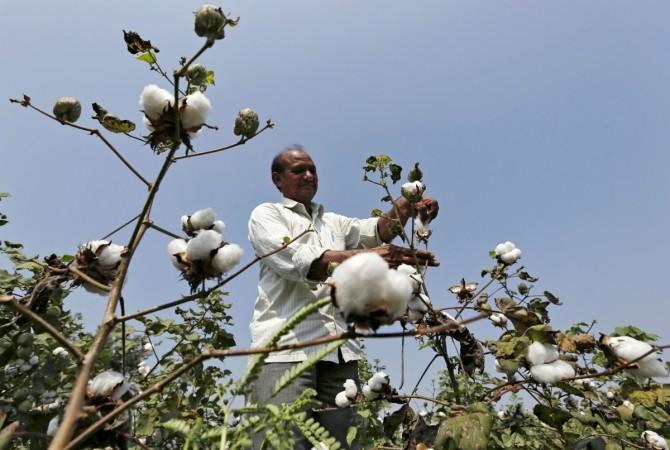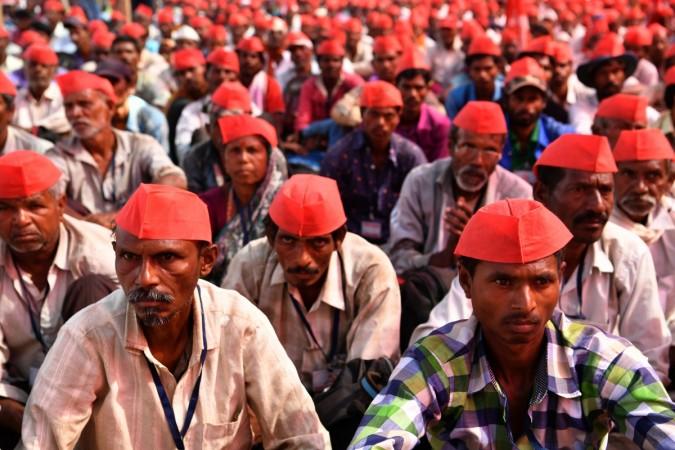
In a significant step, the Maharashtra agriculture department recently slapped notices of Rs 1,200 crore in fines and compensations on around 90 top global and Indian firms for allegedly hawking poor-quality bio-tech cotton seeds, officials said.
This fine-cum-compensation will benefit around 11,50,000 distressed farmers who suffered near-total loss during the cotton season of October 2017-March 2018 after they used BT (Bollgard II varieties) cotton seeds supplied by these top companies.
Leading the pack is the erstwhile US giant, Monsanto Company, now under acquisition by Germany's pharma major, Bayer Group, and other big names in India which buy the BT technology from them.
The orders on fines/compensation were pronounced by Vijay Ingale, Director (Inputs & Quality Control), Department of Agriculture, starting from July (2018), Maharashtra Commissioner of Agriculture S.P. Singh confirmed to IANS.
A top officer from the Department of Agriculture, requesting anonymity, said that the amounts could go up by Rs 300 crore or so (totaling to more than Rs 1,500 crore) in the next couple of weeks as more complaints are disposed off.
"This is a world record both in terms of the sheer magnitude of number of complaints filed (14 lakh) and the massive compensation amounts ordered (Rs 1,200 crore)," an elated Kishore Tiwari, Chairman, Vasantrao Naik Sheti Swavalamban Mission (VNSSM), told IANS.
The state official said that complaints were filed by farmers whose BT-cotton crops were ruined by worm attacks on around 22,00,000 hectares (out of a total 42,00,000-hectares in the state) during the 2017-2018 season.
"Ingale's order has awarded between Rs 16,000 and Rs 20,000 per hectare to each farmer so far. This is to be paid within 30 days, and the companies are liable to shell out several crores of rupees depending on how many farmers have claimed from them," said the officer.

About 2,50,000 pending cases are likely to be decided by October-end.
Some companies have already filed appeals against the Director (I&QC)'s orders before the Commissioner of Agriculture, and if they fail here, they have the option to move the Bombay High Court.
Explaining the background, Tiwari said that more than 20 lakh cotton farmers in the state have suffered losses of over Rs 6,000 crore on around 22 lakh hectares after they used the BT seeds which failed to resist pest attacks by the pink bollworm and others.
"However, only 14,00,000 could file complaints as per the necessary protocol and these have been upheld by the Director (I&QC), providing immense relief to the distressed cotton farmers, and possibly saving them from suicide," he said.
Agriculture expert and ex-Commissioner of Agriculture, Sunil Kendrekar, said that in many cotton-growing states, the BT (Earlier BG1 & latest BG2) cotton seeds require a huge amount of insecticides/pesticides to protect the crops from bollworm pests, especially the pink bollworms.
"After Maharashtra's last season experience, it can be safely concluded that the claims of the BT technology are invalid. The technology has shown signs of failure with the insects developing resistance to it. It is now necessary to either upgrade technology or declare it a failure to safeguard millions of poor farmers," Kendrekar told IANS.
Last year (October 2017-March 2018), around 150 farmers died due to an overdose of insecticides or pesticides and this year so far 22 deaths have been reported, prompting the government to ban five major poisonous pesticides in September 2018.
Nevertheless, Tiwari expressed apprehensions that the orders on the fine-cum-compensation awards "may be dismissed" at the appeal stage (Commissioner of Agriculture) and urged Chief Minister Devendra Fadnavis to ensure that instead of the MNCs, "the interests of farmers are fully protected".
This year, around 1,500 farmers, including 1,100 cotton-growers, committed suicide in Maharashtra while the suicide figure in 2017 was more than 3,200.












